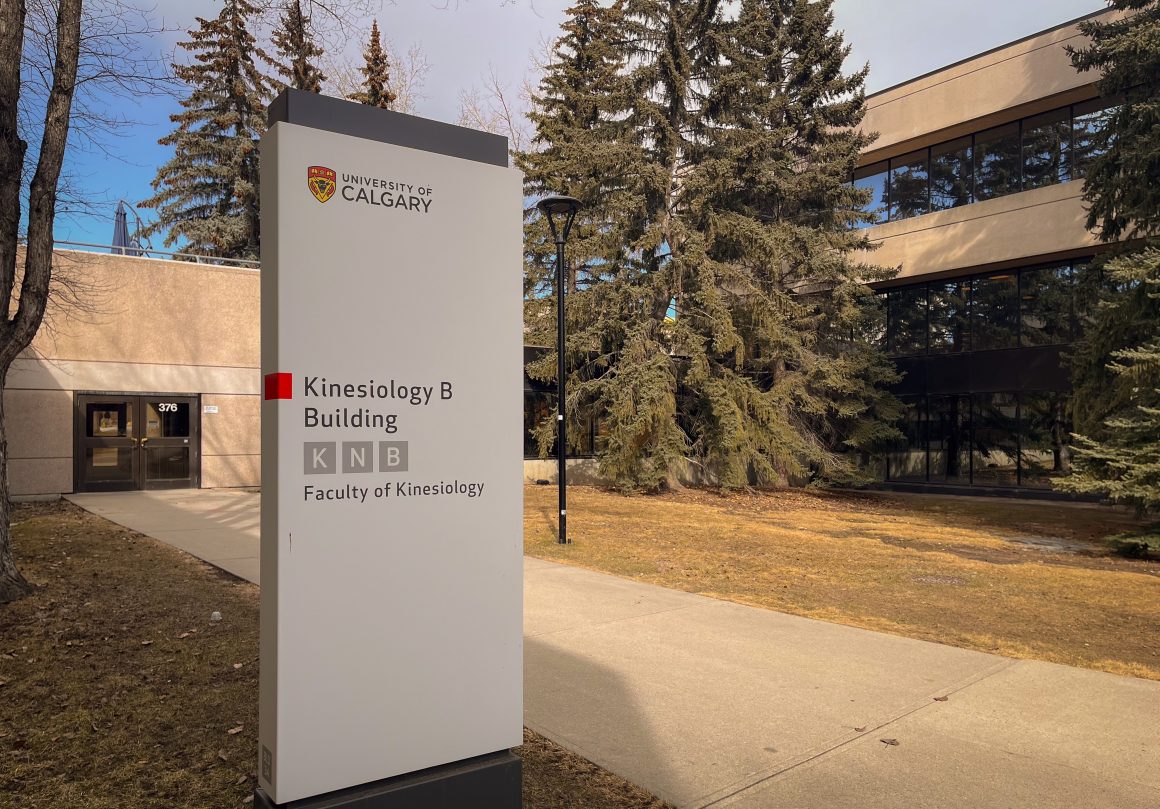
Kinesiology professor addresses gaps in neurodivergent-inclusive physical activity studies
By Andreea Timis, March 14 2024—
In an effort to tackle underrepresentation within the neurodivergent community, Dr. Laura St. John, assistant professor at the University of Calgary’s Faculty of Kinesiology, works with individuals with intellectual disabilities through adapted physical activity. This specialized approach to physical activity caters to individuals’ specific needs and support considerations.
St. John currently teaches Adaptive Physical Activity (KNES 367) at U of C and was part of the Special Olympics coaching staff from 2009 to 2015. She is also part of the neurodivergent community herself, which helped fuel certain aspects of her study. Her research also focuses slightly more on female populations and understanding how periods of sexual transition for neurodivergent individuals can impact physical activity and social and mental health.
In an interview with the Gauntlet, St. John discussed the misconceptions surrounding intellectual disabilities at the time of starting her research, over a decade prior, and the progress that has since been made in attempting to learn more about the topic.
“No one knew what [neurodivergence] was,” said St. John. “It’s been incredible watching as people – and myself – have started to learn what these conditions really are [and] seeing that people are now becoming more understanding and open to the idea of neurodivergence.”
The unravelling of these misconceptions was accentuated by the time St. John spent coaching for the Special Olympics, which provided her with the opportunity to work one-on-one with intellectually disabled individuals and learn more about how to adapt to their needs.
In terms of her research, St. John revealed her interest in the interplay between physical literacy – the development of basic motor skills that allow individuals to engage in movement – and the optimism associated with physical activity.
“Having [physical literacy] skills allows you to engage in different activities and sports. You develop positive feelings around physical activity,” St. John explained. “So the more physically active you are, and the more positive experiences you have in physical activity, you start to enjoy it, and you’re motivated to do it.”
St. John highlighted the existence of anecdotal evidence stating that individuals on the neurodivergent spectrum are not as likely to develop proper physical literacy skills and, as a result, tend to engage less in physical activity than individuals who don’t have intellectual disabilities. The outcome of this is poor physical and mental health, as well as a pessimistic outlook on physical activity as a whole.
“[Sometimes] it’s not really a positive experience for [neurodivergent individuals], so they start to not enjoy being physically active,” St. John said. “They socially isolate. And if they start to disengage, they never get the opportunities to practice [physical literacy] skills.”
As part of her research, St. John aspires to unearth feasible strategies and resources to facilitate and support the development of physical literacy for neurodivergent populations in order to maximize physical activity engagement and improve health outcomes. One of the ways in which she hopes to achieve this is through an updated approach to teaching adaptive physical activity from a neurodevelopmental perspective.
“There are more and more people being diagnosed with neurodevelopmental conditions every day, and we need to start preparing students for how to work with these individuals and how to create an inclusive space,” said St. John.
She further underlines the importance of addressing questions when working with intellectually disabled persons.
“What does it mean to have person-centred practices? What does it mean to create sensory-sensitive spaces and have discussions around [these topics] because [they are] becoming so prevalent,” said St. John.
When asked to elaborate on the focus on minority communities in her research, St. John described that in addition to female populations, her research also took into consideration neurodivergent individuals who have experienced menstruation and may not necessarily identify as female.
“There’s been such a push in the scientific community recently to be more inclusive of gender and sex and how [this] can impact health. So I’ve been going through my [own] research and considering how I’m going to make sure that I actually am using inclusive practices,” said St. John. “Especially since my topic is around puberty and periods of sexual transition.”
The significance of St. John’s research also lies in her representation of the neurodivergent community as a woman and university teacher. One impactful outcome of this stems from the support of her students, some of whom have personally approached her to express their gratefulness in feeling represented in their field.
“There isn’t enough representation of neurodivergent people in academia,” explained St. John. “And certainly for students who are neurodivergent and maybe struggling, or are unsure what to do next. Sometimes it’s nice to have someone in your environment who can relate, or at least [be empathetic] towards what you’re experiencing.”
St. John hopes her research will provide students with a chance to feel heard and supported. She also mentioned volunteer opportunities for neurodivergent students who wish to participate in her research, whether it’s to share their experiences or become physically involved in developing projects and studies.
More information about Dr. St. John and her research can be found on the U of C website.
